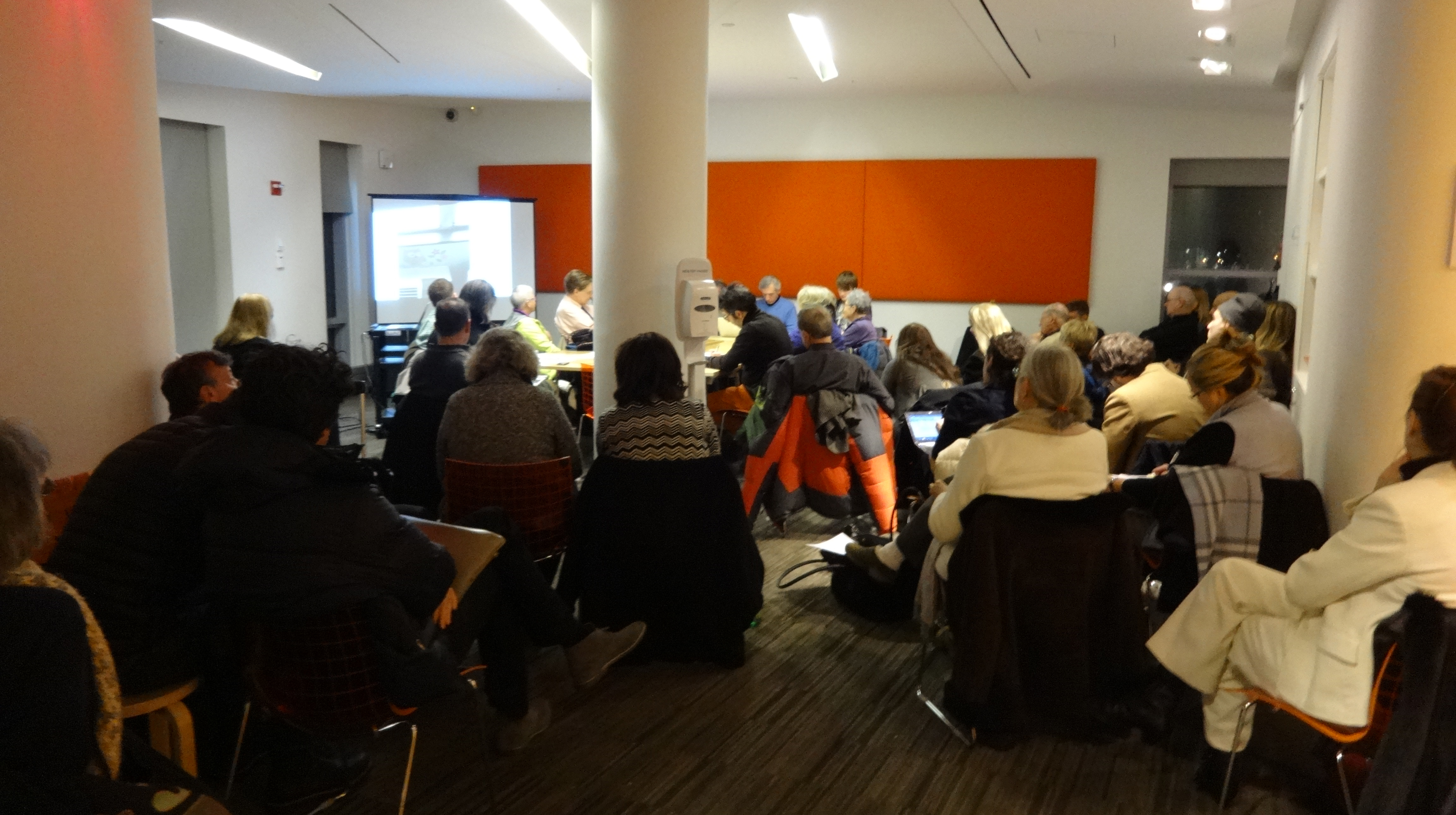This post has been read 2474 times!
 March 4, 2014– By Steven E. Greer
March 4, 2014– By Steven E. Greer
The New York Community Board (CB) members have long discouraged discourse from the public during meetings. However, according to the New York Open Meeting Law, that seems illegal. BatteryPark.TV requested through the Freedom of Information Law the documents or law that would allow the CB1 to stifle debate, and the CB1 was unable to provide any laws are legal justification.
Before each CB1 Battery Park City committee meeting, CB1 group leader Anthony Notary routinely begins the meetings with the threat, “According to Robert’s Rule, I will not allow comments from the public until we on the board have discussed the topic”. Likewise, Chair of the entire CB1, Catherine McVay Hughes, begins the monthly meetings by explaining, “We will begin with public comment…then go into executive session…the public is not allowed to comment.”.
According to the Open Meeting law, Executive Session should be reserved only for the most sensitive of matters, such as:
“1. Upon a majority vote of its total membership, taken in an open meeting pursuant to a motion identifying the general area or areas of the subject or subjects to be considered, a public body may conduct an executive session for the below enumerated purposes only, provided, however, that no action by formal vote shall be taken to appropriate public moneys:
a. Matters which will imperil the public safety if disclosed;
b. any matter which may disclose the identity of a law enforcement agent or informer;
c. information relating to current or future investigation or prosecution of a criminal offense which would imperil effective law enforcement if disclosed;
d. discussions regarding proposed, pending or current litigation;
e. collective negotiations pursuant to article fourteen of the civil service law;
f. the medical, financial, credit or employment history of a particular person or corporation, or matters leading to the appointment, employment, promotion, demotion, discipline, suspension, dismissal or removal of a particular person or corporation;
g. the preparation, grading or administration of examinations; and
h. the proposed acquisition, sale or lease of real property or the proposed acquisition of securities, or sale or exchange of securities held by such public body, but only when publicity would substantially affect the value thereof.
2. Attendance at an executive session shall be permitted to any member of the public body and any other persons authorized by the public body.”
The Open Meeting Law also states that meetings should be announced to the public a week in advance. In other words, board members should not be meeting in private before the official meetings in order to plan strategies of Kabuki theater.
BatteryPark.TV has learned that the CB1 Battery Park City committee board members routinely confer with one another about the upcoming public meetings, and plan strategies to deceive the public. As one example, when CB1 member and lawyer Jeff Galloway was attempting to have a “Memorandum of Understanding” (MOU) that would have formed a large bureacratic oversight board imposed upon the Asphalt Green community center approved with a resolution, he planned in private nonpublic sessions the strategy with fellow members Catherine McVay Hughes and Bob Townley. Mr. Townley represented a major conflict of interest, however, because his own Manhattan Youth community center was poised to lose significant market share to Asphalt Green when it opened. Mr. Galloway even planned to have fellow CB1 members text message him for the right time to enter the meetings late, avoiding the crucial debate periods.
The Community Board, which is a city level organization governed by the Manhattan Borough President and City Council, also allows State Assembly Speaker Sheldon Silver to routinely influence the CB1 meetings by having staffers, such as Paul Goldstein, dictate to Mr. Notaro what to add on the agenda. For example, the planned closure of the Stuyvesant community center resulted in a CB1 meeting hosted at the Asphalt Green auditorium. The seats were filled with protestors of the closure. However, the decision to make Stuyvesant an agenda item was orchestrated in advance during secret meetings between Sheldon Silver’s staff and the CB1’s Notaro and Townley.
Whether a state elected official, such as Sheldon Silver, is legally allow to meddle in city-level matters, is unclear. It could represent a new layer of illegality to the process. Stay tuned to further reports.
Told you so: City Council to overhaul Community Board system
The public is allowed to speak anytime during CB1 and BPCA board meetings
Jeff Galloway dodges meetings about his secretive MOU
CB1′s Jeff Galloway meets in secret with city official about West Thames Bridge
